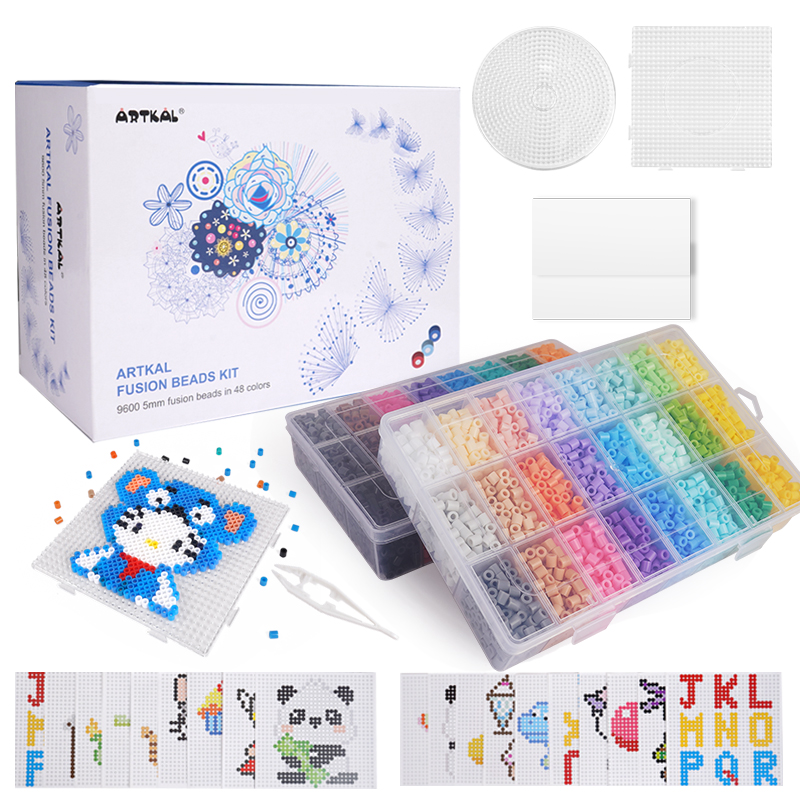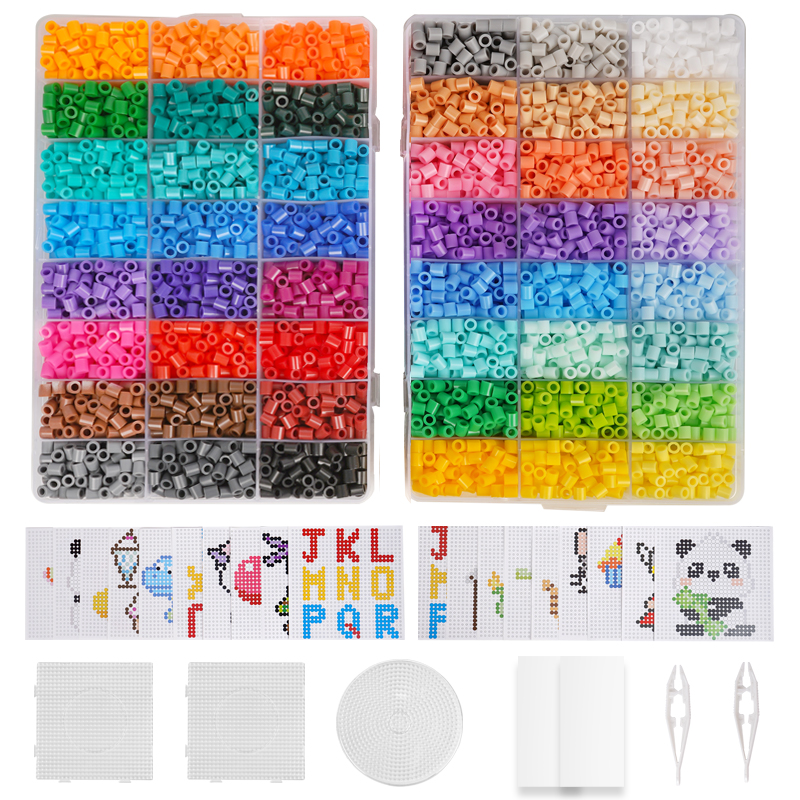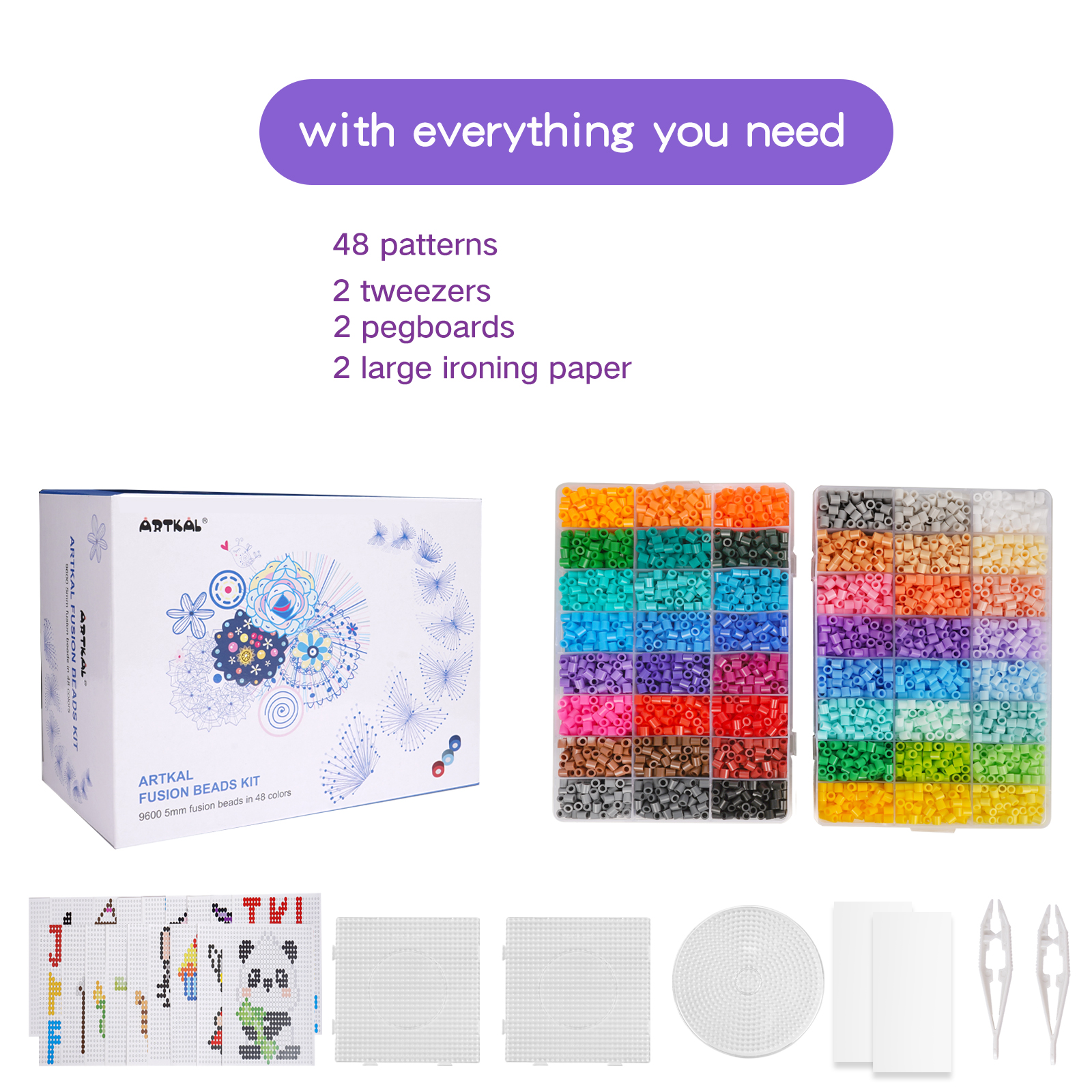Artkal beads, those tiny, colorful plastic beads cherished by crafters of all ages for their versatility and creativity, have captivated the imagination of millions around the world. But what's the story behind their name? In this article, we'll explore the origins of Artkal beads, shedding light on why they are called "Artkal" beads. Additionally, we'll delve into the role of Artkal Beads manufacturers in the production and distribution of these beloved crafting materials.
The Genesis of Artkal Beads
The history of Artkal beads traces back to the late 1950s in Denmark, where a visionary named Gunnar Knudsen conceived the idea of creating plastic beads that could be melted together to form designs. After extensive experimentation with various materials and manufacturing processes, Knudsen developed a formula for small, heat-sensitive plastic beads that could be fused together with the application of heat. These beads, initially marketed under the name "Nabbi," gained popularity for their innovative and artistic potential.
The Establishment of Artkal A/S
In the early 1970s, the production of Nabbi beads was taken over by a Danish company called Artkal A/S, founded by Knudsen and his associates. Under the Artkal brand, the beads underwent further refinement and enhancement, leading to the creation of the iconic Artkal Beads known today. These beads, made from high-quality, non-toxic plastic, were available in a wide range of vibrant colors and sizes, offering endless possibilities for creative expression.



The Naming of Artkal Beads
The name "Artkal" is derived from the Danish town of Hammel, where the Artkal factory was located. The founders of ArtkalA/S chose to name their company after this town as a tribute to their Danish roots and as a reflection of their commitment to producing superior quality products. Consequently, the beads manufactured by Artkal A/S became known as "Artkal Beads," a name that quickly gained recognition and popularity among crafters worldwide.
The Role of Artkal Beads Manufacturers
Artkal Beads manufacturers play a pivotal role in the production and distribution of these beloved crafting materials. With a focus on quality, safety, and innovation, manufacturers ensure that Artkal Beads meet the highest standards of excellence. From sourcing raw materials to overseeing the manufacturing process and conducting quality control checks, manufacturers are dedicated to delivering beads that inspire creativity and provide hours of enjoyment for crafters of all ages.
Conclusion
In conclusion, the name "Artkal beads" is rooted in the Danish town of Hammel, where the Artkal factory was established in the 1970s. Since then, Artkalbeads have become synonymous with creativity, imagination, and artistic expression, captivating the hearts of crafters around the world. Artkal Beads manufacturers continue to play a vital role in the production and distribution of these beloved crafting materials, ensuring that they maintain their reputation for quality and innovation. As Artkal beads continue to inspire creativity and delight crafters of all ages, their name remains a testament to their Danish heritage and commitment to excellence

